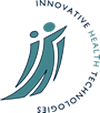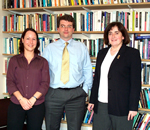Telemedicine and the 'Future Patient'? Risk, Governance and Innovation
Abstract
New developments in ICTs will have a major impact on the organization and experience of health care. The notion of the "future patient" has been deployed to make sense of a service user distantaiated in time and space from health care providers, We are interested in the ways that a new field of clinical policy and practice, organized around "telemedicine", and which separates clinicians an patients in time and space, time, will impact upon the organization and delivery of health care. In particular, we are interested in the place of the patient in this field, for patients' voices are almost absent from current debates, which are dominated by notions of efficiency and innovation in health care provision.
We proposed a study of the field of policy and practice around telemedicine, and will critically interrogate ideas about risk, innovation, and governance as these are apprehended by patients, clinicians and managers, and high level policy actors. The study will employ qualitative research techniques, sampling the views and perspectives of a wide variety of actors (about 60 in number). We will focus out analysis on the ways that telemedicine is being drawn into new ideas about the configuration of relationships between patients and the NHS.
Summary
Background
ICTs are the underpinnings of a new field of healthcare practice - telemedicine - predicated on remote interaction between clinician and patient. The possibilities that these new technologies present to health care systems; practitioners, carers and patients are significant; and 'linking' patients and clinicians in new ways (using video conferencing, or store-forward systems) has proved attractive to policy makers too. Policy announcements have stressed the novelty and potential of telemedicine systems, emphasising their place within a range of ICTs that will force a paradigm shift in the organization and delivery of health care in the UK.
This shift has implications not simply for service configuration, but also for the organisation of professional knowledge and practice, and the configuration of patient-hood. The 'future patient' has been recently hypothesised, who maximises self-care through the use of ICTs that permit interaction with health services widely separated in time and space. In practice, current developments are more modest, but still have important implications for health care experience and practice. The application of telemedicine systems in the NHS is driven by notions of modernisation but remains contentious, constrained by ideas about the evidence-base. Moreover, the clinical techniques that must be deployed within it are relatively underdeveloped, and the technologies through which they are mobilised are themselves unstable. Nevertheless, all health authorities are now required to develop an ICT strategy that includes the application of telemedicine to local problems.
Research Design
This is built around three questions: How is telemedicine constructed and enacted as an innovative health technology? How is telemedicine constituted as a field where risk is experienced and resolved? How is telemedicine organised in relation to ideas about governance and accountability?
We will use diabetes telemedicine as a case study, sampling this rapidly developing area of telemedicine, where both service organisation and technologies are relatively advanced. We will map policy/practice networks outwards from them, identifying and sampling the perspectives of key informants within the NHS (including patients, clinicians and managers), technology manufacturers, Community Health Councils and their successors, private sector service providers, professional associations and other relevant actors.
Moving outwards from specific services and disciplines policy/practice networks become steadily more diffuse, and so we will employ a second sampling strategy to explore these. We will work inwards towards clinical practice, identifying key informants and sampling the perspectives of patients' representatives and high-level policy actors.
In our previous work, we have collected and archived a significant body of data, consisting of transcripts of interviews meetings and conferences. We will revisit this material, identifying and sampling relevant data for re-analysis in the light of the research questions.
We will interview key informants using conventional semi-structured interviews, and additional telephone interviews with respondents not otherwise easily reached. We will seek opportunities to observe presentations (at conferences and other meetings) about the implementation and adoption of telemedicine. We will also interview contributors to the 'grey' literature (e.g. position statements, policy documents; and holders of relevant web sites) in the field.
Policy and Academic Implications
Because telemedicine research has been organised primarily in local clinical domains, work in the UK has inevitably been focused on a field of practice that is contextually fragmented, and often organised through short-term R&D initiatives. But examining telemedicine through the lens of clinical activity means that the wider networks of policy and practice through which it is constituted and made available to clinicians are elided. Complex policy/practice networks are emerging and coalescing around specific attempts to bring telemedicine into service - most notably in diabetes. Constituents of these networks include, policy actors (e.g. NHS Executive, NHS Direct, NHS Information Policy Unit); industry representatives (e.g. the Telemedicine Alliance, UK Telemedicine Association) and individual companies; service providers offering public/private partnerships; locality based clinicians and NHS managers; researchers and research funding bodies (e.g. DH, EPSRC, MRC). Beyond these are more ambitious players (e.g. Cabinet Office, BT Government) working to extend the policy field for ICT applications in the health sector.
Despite the apparent promise of telemedicine, its instability is measured by its failure so far systematically to penetrate the organisation of health care. Beyond the pragmatic negotiation of telemedicine in the immediate context of clinical practice, there are wider issues about how the development/ implementation of telemedicine is funded, about its organisation and management at the policy level; and about the its potential medico-legal risks. These are crucial policy problems, and our work will explore how they are being addressed at critical nodes within policy/practice networks.
Contacts
Outputs
Final Report Summary and References here - pdf
Papers
Outputs 1: Conceptual and policy related
May C, Finch T, Mair F, Mort M. 'Towards a wireless patient: Chronic illness, scarce care and technological innovation in the United Kingdom'. Social Science & Medicine (in press)
May C, Mort M, Mair FS, Williams TL. 'Factors affecting the adoption of telehealthcare in the United Kingdom: the policy context and the problem of evidence. Health Informatics Journal. 2002; 7(3/4):131-134.
May C, Rapley T, Moreira T, Finch T, Heaven B. 'Reshaping the clinical encounter in late modernity: technologies and subjectivity in primary care' (Submitted, Sociology of Health and Illness)
Mort M, Finch T, May C, Mair F. Telemedicine, Telehealthcare and the Future Patient: some reflections on being absent. (Submitted, Social Studies of Science)
May C, Finch T, Mort M, Mair FS 'Evidence of consent? Patient satisfaction studies and the development of telemedicine (Submitted, International Journal of Medical Informatics)
Outputs 2: Analysis of archived data
May C, Mort M, Williams T, Mair F, Gask L. Health technology assessment in its local contexts: studies of telehealthcare. Social Science and Medicine. 2003; 57: 697-710
May C, Harrison R, Macfarlane A, Williams, T, Mair F, Wallace P. Why do telemedicine systems fail to normalise as stable models of service delivery? Journal of Telemedicine and Telecare. 2003;9(1):25-26.
May C, Harrison R, Finch T, Macfarlane A, Mair F, Wallace P. Understanding the normalization of telemedicine services through qualitative evaluation. Journal of the American Medical Informatics Association. 2003; 10(6): 596-604
Finch, T, May C, Mair FS, Mort M, Gask L. Integrating service development with evaluation in telehealthcare: an ethnographic study. British Medical Journal. 2003; 327 (7425): 1205-1208 Access the paper here - pdf
May C, Mort M, Finch T, Mair FS. The anatomy of failure? Teledermatology in an English city. In: Whitten PS, Cook D. eds. Understanding Health Communications Technologies: A Case Study Approach San Francisco, Jossey-Bass Inc (forthcoming)
Outputs 3: preliminary abstracts and analyses of new data
Finch T, Mort M, May C, Mair FS. Telehealthcare: perspectives on the changing role of patients and citizens. Journal of Telemedicine and Telecare (forthcoming)
Finch T, Mort M, Mair FS, May C Shifting constructions of risk and accountability in health care: technology and 'tele-practices' (in preparation)
Mair FS, Finch T, Mort, Mair FS. 'Negotiating clinical risks in telehealthcare (in preparation)
May C, Finch T, Mort M, Mair FS 'Being much more modern? shifting notions of innovation in British telehealthcare in the NHS' (in preparation)
Mort M, Finch T. Generating principles for telehealthcare: a citizens' panel perspective. Journal of Telemedicine and Telecare (forthcoming)
Presentations
Outputs 4: conference presentations and invitations accepted
Finch T. Understanding user satisfaction with telehealthcare. Telemed03 London, January 2003
Mort M, Williams T, May C, Mair F. 'Telemedicine, telehealthcare and the future patient' EASST 2002. York, July 2002.
Mair FS Workshop organiser: Evaluation and Implementation of Telehealthcare Services -sponsored by TASG (Telehealthcare Adoption Study Group) Telemed03 London, January 2003
Mair FS Implementation issues in Telehealthcare. Telemed03 London, January 2003.
Mair FS. Future health technology and the impact on health professional and patient relationships. Healthcare Exchange London. July 2004,
May, C. 'Invited address: Future nurse and future patient? Tele-triage, telenursing, and ehealth'. Nursing in a Technological World: Evidence, Practice and Future. Brisbane Australia July 2003.
May C, Finch T, Rapley T, Moreira T, Heaven B, Graham R. 'Hybrid medicine: technologies, subjectivity, and primary care' CSSHM Summer Conference, "Innovating Medicine: medical technologies in historical perspective" Manchester, July, 2003
May C, 'Where is telemedicine?' IPPR Seminar, Institute of Public Policy Research, 22 April 2002
News
November 2003
Carl May's project team "Telelemedicine and the "Future Patient"?" are conducting research about the role of the 'Future patient' in the context of telehealthcare & telemedicine. They are particularly interested in examining issues of innovation, risk and governance in the development of policy and practice in the application of these technologies.
To permit a greater number of individuals to contribute their views to this study, they have designed an online questionnaire which takes just 5-10 minutes to complete. Through the questionnaire located at the link below, they are inviting views about the development and use of telehealthcare from as wider range of perspectives as possible, including health care professionals, policy makers, researchers, system developers and suppliers, patient and consumer advocacy groups, patients themselves, and the general public.
To access the questionnaire, please click on the link below:
http://www.ncl.ac.uk/random/telemedicine.html

